Spiritually speaking - With Sadguru Sri Madhusudan Sai

Creating better human beings
Currently, The world’s two top priority areas are healthcare and education. The pandemic also taught us that these two are the utmost important sectors today for any country’s progress. India is no exception. Recently, Sri Sathya Sai University for Human Excellence founded by Sadguru Sri Madhusudan Sai organised two days global conference on education and healthcare at Sathya Sai Grama, Muddenhalli, Karnataka, India. The conference saw active participation from eminent national and international personalities.
The Global Education Conference (GEC) 2023 reconvened after two years post-pandemic, to develop a road map for the future of education systems globally. The conference aimed to gather educationists, policymakers, teachers and every single person who contributes to the education system in their respective countries, to deliberate on the ways to plan, initiate and implement a global values-based system of education.
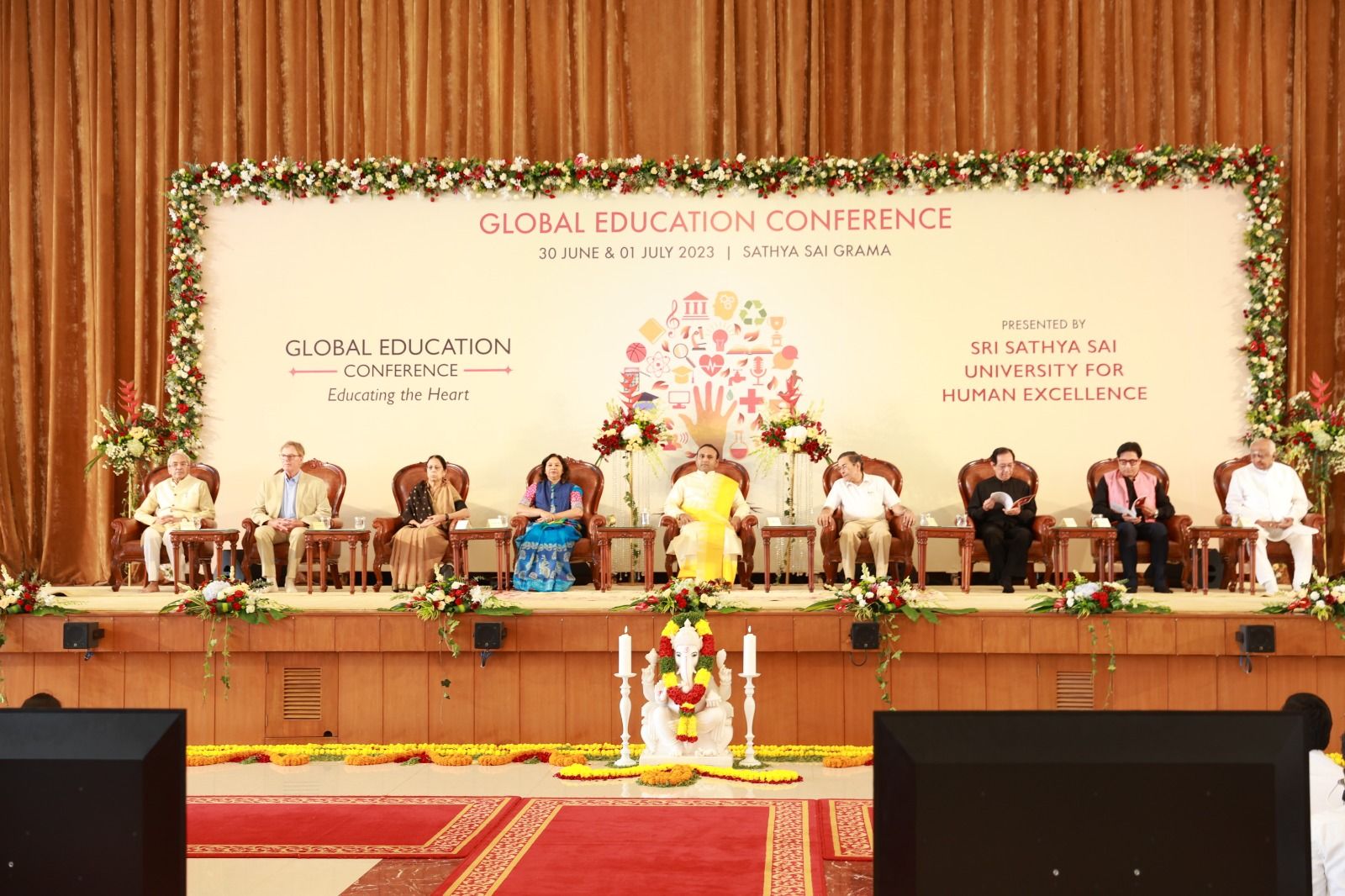
Spearheading a unique global mission of service and spirituality across 33 countries, Sri Madhusudan Sai has established institutes of excellence which bring respite to thousands of underprivileged and needy children, through free healthcare, free education, and free nutrition.
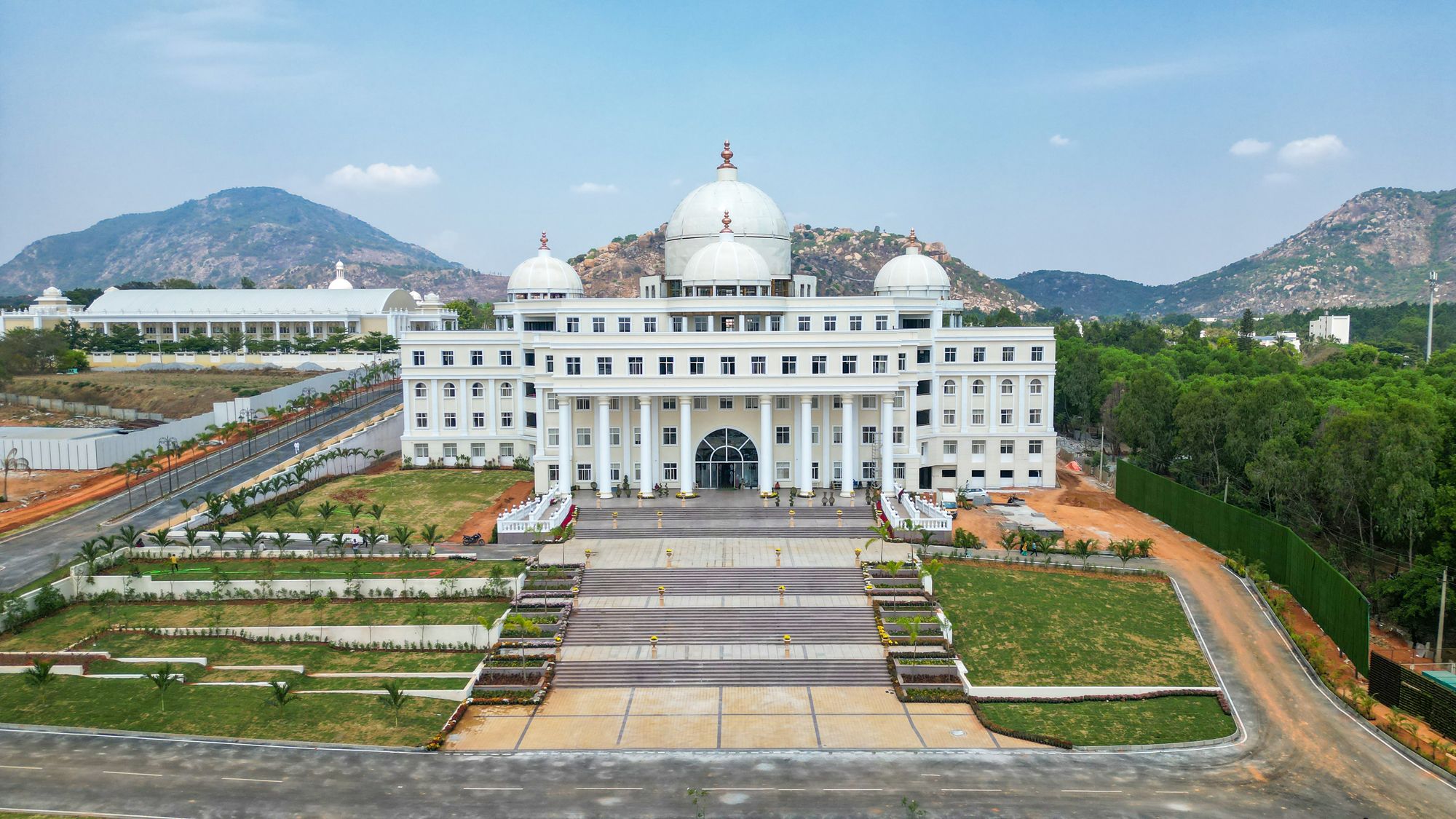
On the sidelines of the conference, Akshaya Mathrubootham and S M Boothem from bizmudra.com had the opportunity to interact with Sadguru on a variety of issues relating to education systems and what needs to be done to improve them. The Spiritual and Social Leader spoke at length on the subjects while we were also offered an opportunity to visit and tour the hospitals and the facilities they offer on the campus at Sathya Sai Grama.
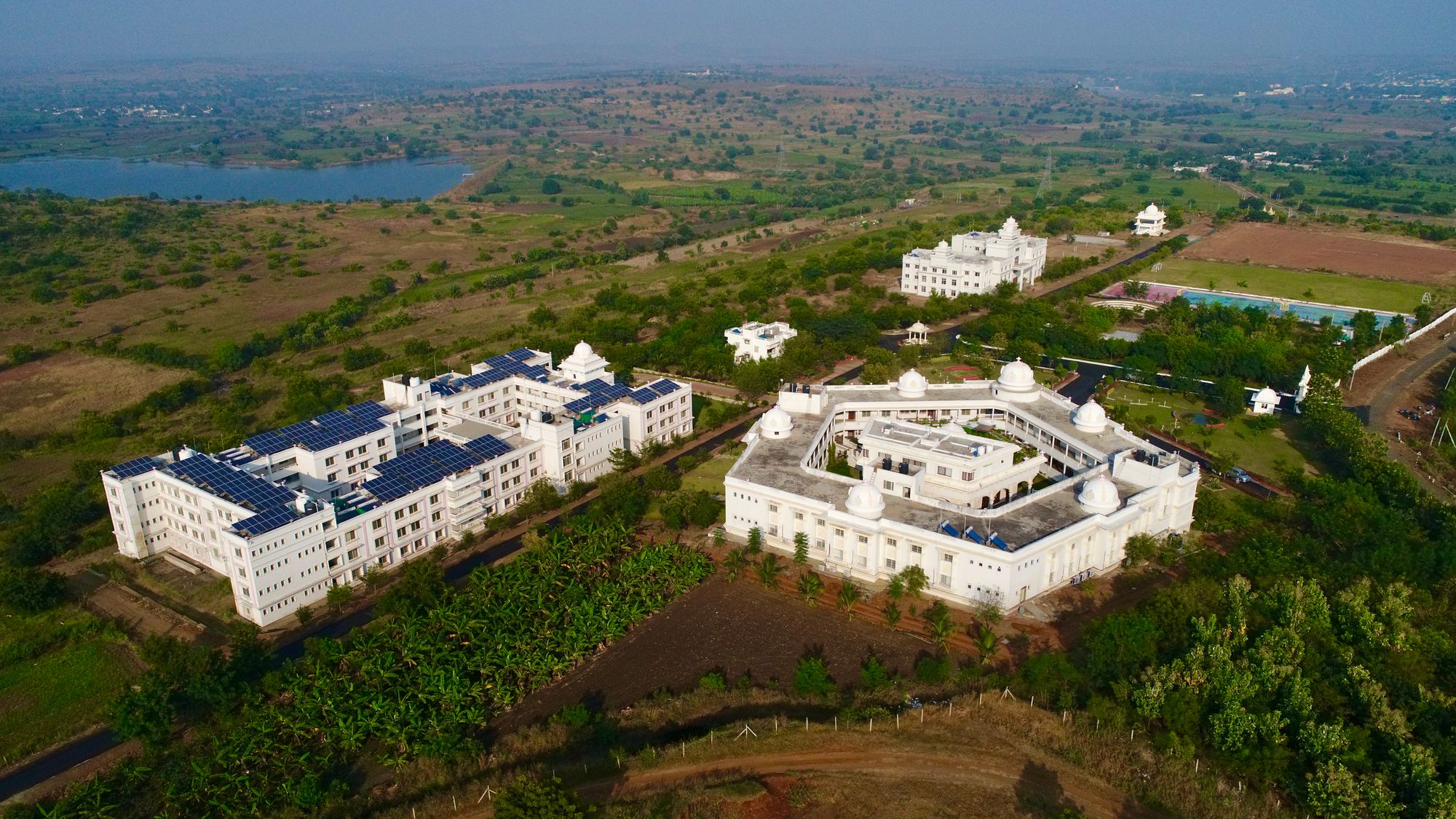
Could you give us a view of the Education Conference?
A: This conference was an effort to bring together like-minded people and reimagine the education system. As you know, education is a process that keeps undergoing transformation. According to the time and situations, the subjects that we studied today were not being taught a hundred years ago. And so, a hundred years later we'll be studying something else, we don't know. However, throughout the process of education, one thing remains constant, which is to create students of good character. Character was a relevant factor a hundred years back and it'll also be relevant now, even when all the other things, curriculum, pedagogy, and assessment will change.
Somehow over the last hundred years, education systems in our evolution, the hard aspects in terms of technology, information, science, and everything else have come in, and the softer aspects of human interaction, social responsibility, and engagement with the community have taken a back seat. One is because it has become very competitive and so children do not have enough time for anything else. The teachers do not have the bandwidth to accommodate even these subjects. It has become very dry in terms of imparting education. And we are trying to impress upon people that it's time that we brought in the softer aspects of education, educating the heart.
"You know, educating the head is all about the knowledge systems, educating the heart about creating better human beings who are sensitive and more caring and concerned about others"
Why do you think this education conference is important?
This is a very important inflection point I would say. From here, what happens in the next 25 years to a hundred years; Depends on what kind of education we impart to our children. And 65% of children are in rural areas. They are the ones who are to be truly addressed.
They're our target audience. So that's where we are working. That's why I think I would draw the attention of all the educationists of the country and the world at large. And devise localized solutions. And corporate culture, heritage, tradition, and social responsibility in the education system, which is largely missing from the Westernized way of doing things. That's very transactional and I would say all success there is monetized. Because of this, if you don't make money doing something, you're not a successful person, even if you have a wealth of knowledge. If you're doing a lot of good to the country, it doesn't make any sense to the Western mindset.
I want to bring back the Indian way of thinking, where a child is more than just a person who is gathering all information and trying to compete in the very harsh market and trying to make the maximum money out of the knowledge, and education skills that he has.
How do you see the role of education in a country like India, with a high younger population?
I believe that the Indian race is a very intelligent race from time immemorial, with all the inventions, discoveries, and new knowledge systems, more or less, India has been the cradle of civilization for the whole world. It may be documented or not. But we all know that so much has been contributed by Indians.
Indians are an intelligent race, a curious race, an innovative race, and that is why they are thriving everywhere in the world. You see large organizations are being run by mostly Indian CEOs
Meanwhile, I think the education of the rural and the underprivileged is what is under question. Because that is where education is not reaching. Those who can buy an education and afford a good education, in an urban setup, they're able to try. Those who are stuck behind in the rural areas because infrastructure is not sufficient. The faculty is not available. There are so many challenges. Everybody has to be taught in their language locally, otherwise, they can't come up the curve. Our challenges in India are very different from the whole world.
What is your take on knowledge sharing from global counterparts?
We are all different countries with different cultures, but we all are intertwined in everything and knowledge systems, especially. You see what the discovery or intervention happens in us it does affect the lifestyle in India. The communication methodology has improved. We are able to share information much faster than before. That is helping many people grow together.
"My idea is that India was always about sharing knowledge. India never kept the knowledge to it. In fact, it's a beautiful concept; ‘The more you share, the more it grows. The more you keep with yourself, the more it declines’. When one teaches to learn, every time you learn, every time you teach. India has been the knowledge powerhouse of the world since ancient times"
Unfortunately, it's not been documented. As I said, most of it was lost during the various invasions and wars. We always say that zero was in the global system as India's contribution. Yoga has come up now and so many other architecture. We had the first planned cities, right? We had mathematics, science, astrology, metallurgy, you name it, right? But we can reclaim that legacy and we can continue to depend on, as I said, the indigenous intelligence that we already possess as a race. As we're a very old race. We are naturally more evolved and intelligent than others.
This is what we need to identify in our children. And most importantly, I feel that knowledge is to be shared knowledge should not be held back.
And this should also help us to develop better societies, not for us, but for the whole world. We want everybody to grow with us. We just don't want to be the only people growing. So, this is how we have contributed to the world earlier, and this is how we can do it even again. But I would say the biggest pain point would be to make sure that this knowledge is available to the last child also, who cannot afford to pay for it, who cannot go to an urban setup and who does not have the same privileges and connectivity to that child. We should be able to include them all. In our mainstream, that focus should be on the policymakers, educationists, academicians and society at large.
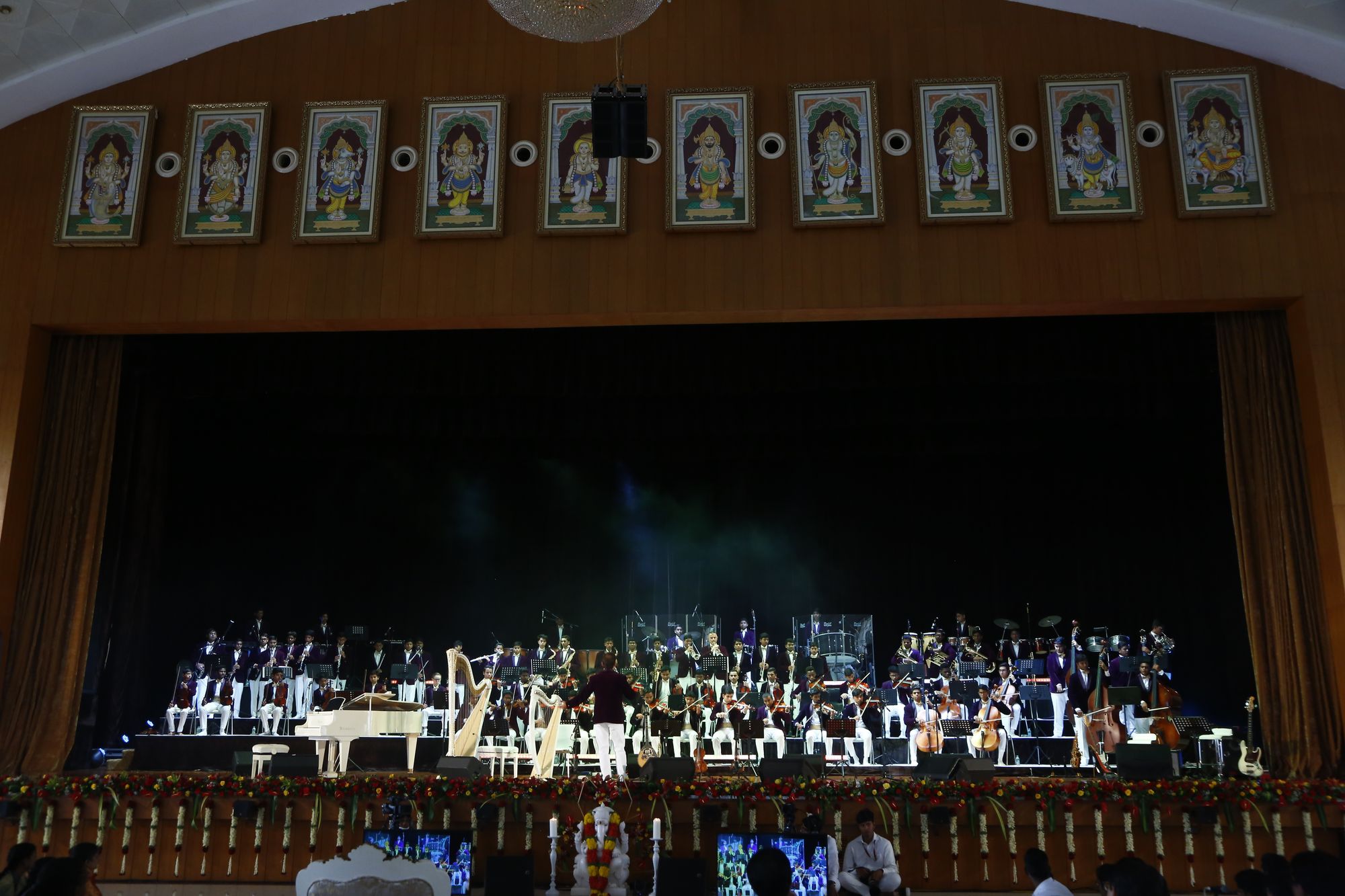
Can you tell us more about Value based education?
There is a lot of opportunity in rural areas to redesign our education system to include all aspects, that is the technical aspect, the academic aspect, as well as the moral and the social aspect, cultural aspect into it. We can redo the system now and that would help us to deviate from the typical westernized system of education that we had adopted during the British pre-colonial times. And very little has been done to change that except adding subjects more or less. The methodology, pedagogy, or the ultimate outcome, which is employment generation has remained more or less the same.
But now India is all about entrepreneurship. The Prime Minister also talks about how we have to be a start-up economy. My view is that education in India can be redesigned to create more entrepreneurship. While there are many challenges, it means there are many solutions and that has to be localized. That is one side of education we must focus on solving our local problems. And the other side is we have to incorporate the softer aspects of character building, which is the ability to make the right decision in all circumstances.
The child should have the ability to think, discriminate and decide correctly, which is good for the child, good for the family, and then more importantly, good for the community and nation at large. So, that kind of a citizenship world, creating a responsible citizen, that is the other aspect of education, both have to be amalgamated.
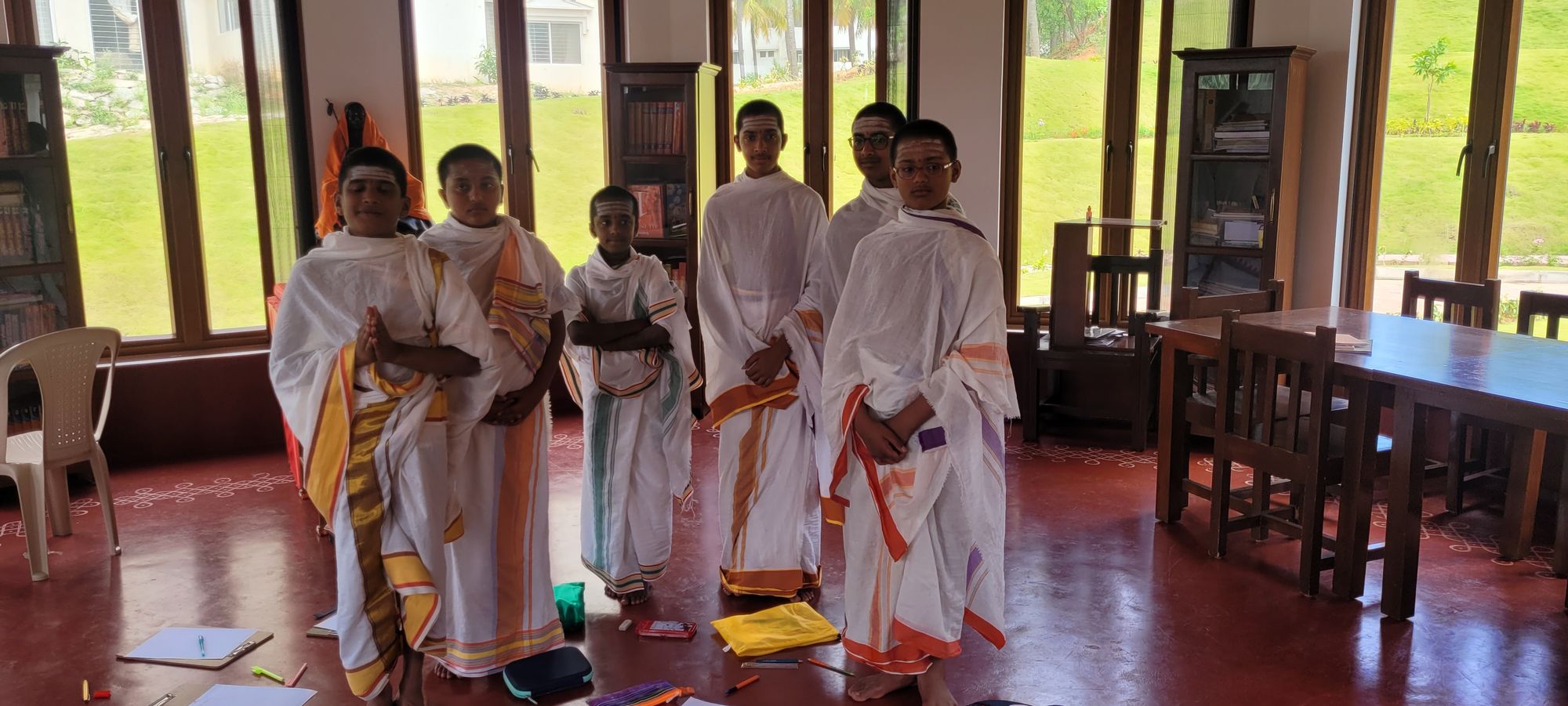
How is value-based education more important in today’s culture?
We needed a whole lot of good teachers, to create good students. We, as an institution, have been into value education for the last, almost four, four to five decades. But the trust is even more now in the last few years because we saw the deviation in society.
The one stakeholder, the important component of this whole thing is a child. Which is a student, but the more important part is the teacher. If you have the right kind of teacher who will be able to teach this idea of values, because values are not something you can draw on the board and say, now you get it right. It's not an equation of mathematics that you derive and prove it is something that you have to live with every day. So, we need teachers who are role models for the students who follow these values. Simple with compassion, and kindness. Concern, truth, peace, nonviolence. They have to live those values.
No, the parents are also not looking after the children as much. Because they're busy. They need two salaries or two incomes to run the family now. In a situation where either rural parents are uneducated, they cannot take care of the children, and older parents are too busy to take care of the children and their nuclear families, their grandparents are not living anymore with the children. There's nobody who is teaching these softer aspects to children how to be, talk and engage with society. It all has become really academic and competitive affair. That is why it's time that we include it in our regular curriculum itself. Some of these programs are similar to your model science classes.
But again, as I said, nobody knew what was happening in the class because the teachers were not capable of teaching. No proper books, no pedagogy, no proper assessment and things like that. You know, there are programs, there are activity-based learning where parents have to get involved, the community has to get involved. At some point, the locality where the children are, you must engage with them. I'm hoping after a year's time, once we have experimented and we have come to a conclusion, we can make a policy paper out of it.
Hopefully, we will be able to influence the policyholders. And when they kind of open this idea to the whole country that these are very, very constitutional values. These are not religious, these are not part of catering to a particular community or caste. They are universal values, we call them. And these are not risks for India. These can be applied in any part of the world. Since we are all human societies. We all need the same values of compassion, kindness, and stuff like that. This is not just, it should become a national thing, but I think it should become international times to come.
That's why we invited people from around the world to this conference, and then we can discuss this. When they go back, they can adapt it to their cultural heritage. You know, you take it to, let's say Australia, they have their own cultural heroes or social heroes. Actually, those stories have to get incorporated.
What is the contribution of the conference in the form of execution?
Most of the conferences end up with nice ideations. There's a good conclusion that you want to agree and a paper is published and that's it. But no, I'm very clear that it has to be executed. So, as I again, go back, the theme of the conferences is educating the heart, right? To me, the heart is about the value system.
Now as an institution, we have come out with 12 books from class one to class 12. And these are just 10 constitutional values. We have not even touched, religion or spirituality. Just the simple values. Truth, peace, non-violence awareness, mindfulness, patriotism. From social service, these are the values which we have taken in. And these 10 values, we are trying to teach children from first to 12. These books are going to be launched soon. And we are also coming up with training programs for those teachers who are interested. They will be trained at our institution, and now with Zoom and other facilities, thanks to Covid, people are comfortable learning online. We are going to conduct a lot of training programs throughout the year and make these books available for free. They're available online. They can be also printed at their end. And, we are not patenting it. We are not copywriting it. We just want to ensure that things are taught the way it's meant to be. There are workbooks. They can ask us to teach them and we will train them.
I will write it from the Indian perspective. Like that, we will keep it open because we are not copying or patenting it from that point of view. They can take permission and print as many as they want to. Distribute as many, and not, they also cannot sell and market this. So that is the only condition. And now we are going to share with everybody and we also want to train them. That's great. Yes. I mean that actually addresses both scalability as well as the execution part. Scalability is possible and you remove commerce from the equation.
As I said, at this point in time, it has to go back. Those were interested because there's no rule or a policy at this point in time. Right. However, NEP (National Education Policy) does talk about teaching the software aspects to the children without explaining how. And then how part is not fully addressed in NEP. They're asking stakeholders in the society too, so we are going to go back with this as a model, hopefully in a year's time when we have probably trained 5,000 teachers across the country in value education who have implemented these various levels from one to 12, and they come back with feedback and say how this is helping.




